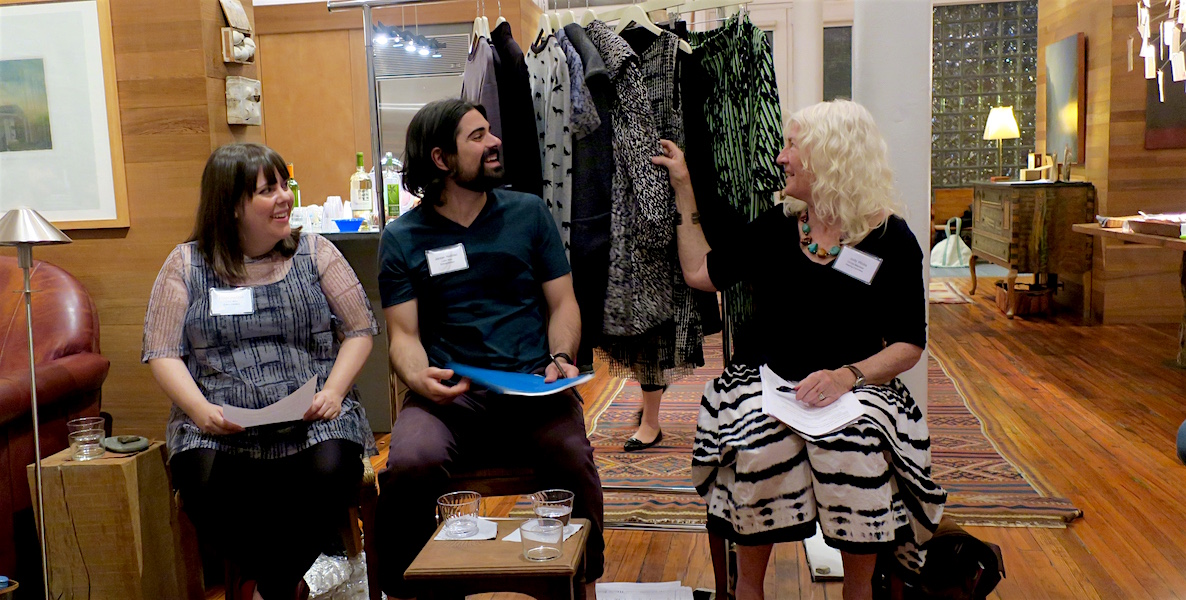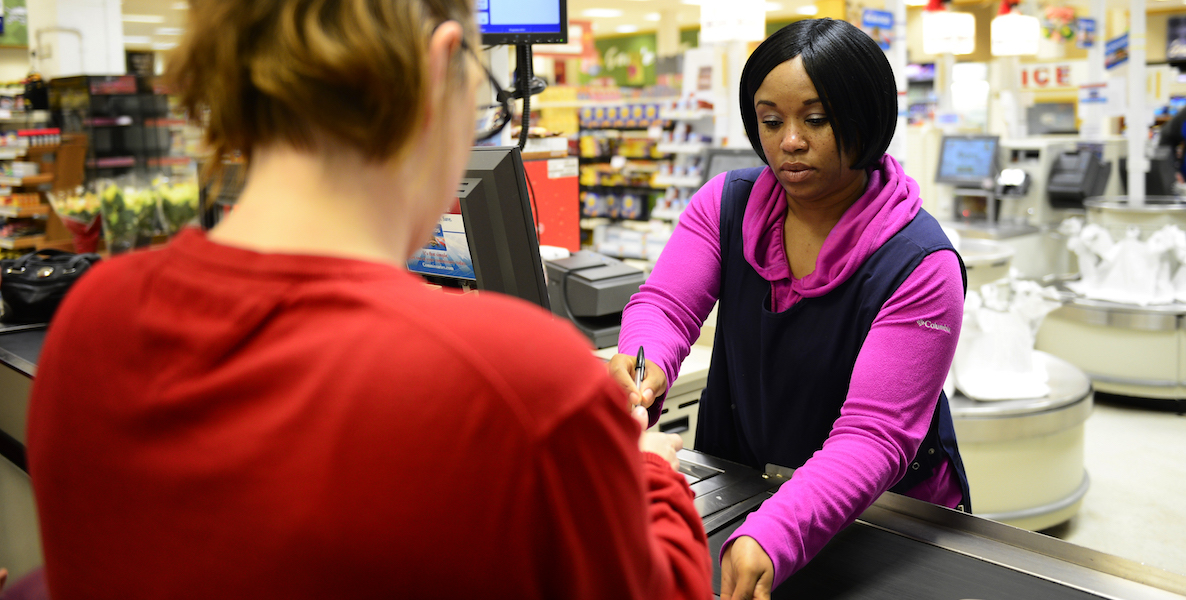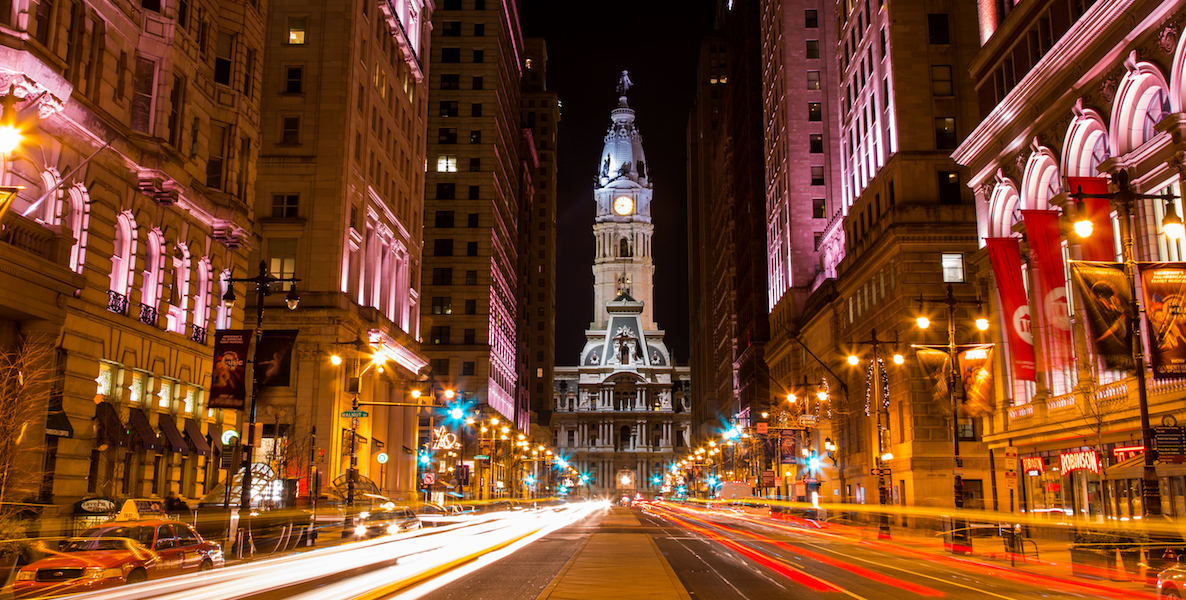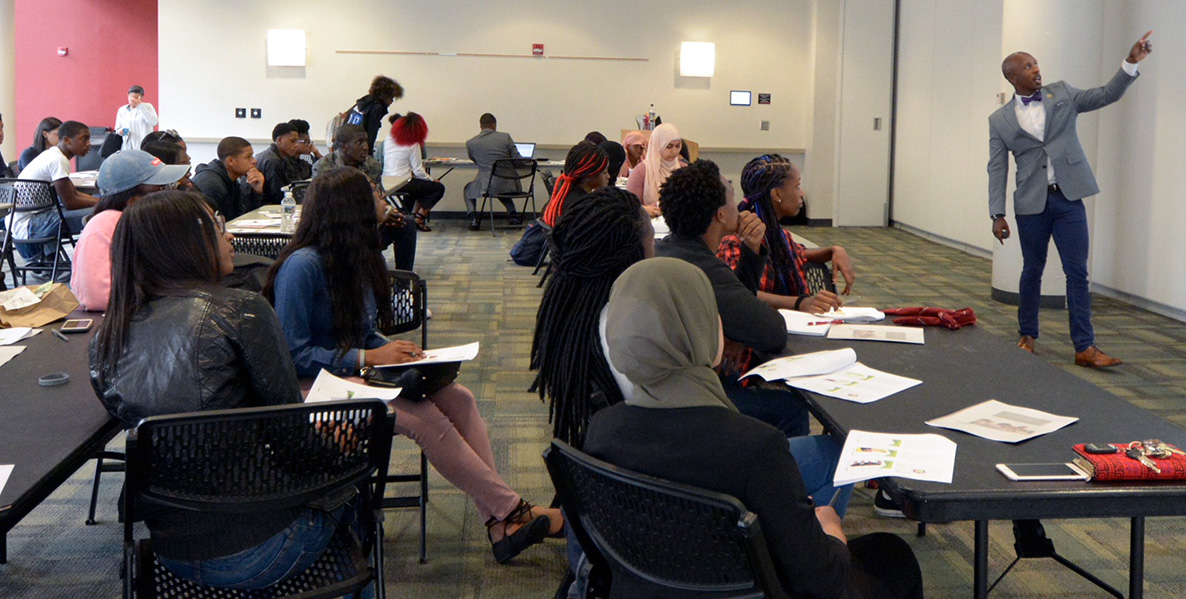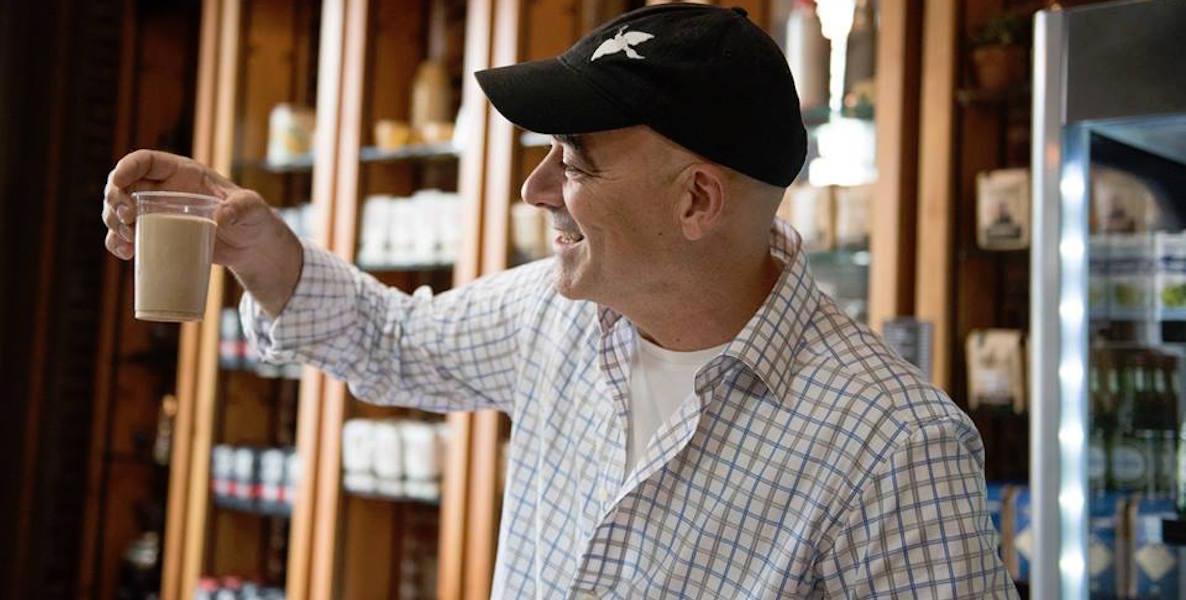Did you see that report in The New York Times a couple of weeks ago, that an eye-popping 43 percent of the corporate tax savings from President Trump’s trickle-down cut will be going to stock buybacks and dividends? And that 19 percent is being spent on mergers and acquisitions? And that only 13 percent is being allocated for bonuses or raises for the working men and women Trump has said he was elected to serve?
Prefer the audio version? Listen to this article on CitizenCast below.
Audio Player
Well, guess who told us so? Sure, Bernie and Elizabeth Warren warned us that Trump’s cuts weren’t going to fuel growth or address income inequality. But the most credible critique of the policy—indeed, the most prophetic—came from a badass, stream-of-consciousness adventure junkie in Fishtown, whose no-fear, no-BS style of being in the world is more befitting of a rock and roller than a corporate CEO.
There Todd Carmichael was, in the pages of The Inquirer, where he’d penned an op-ed that seemingly defied the interests of his own class, and on MSNBC, saying what few one percenters had the guts to: First, La Colombe’s co-founder and CEO made the economic case against Trump’s tax cut, explaining that, while the U.S. economy needs to narrow the gap between its haves and have-nots, it’s not in need of revving up: “This is a stimulation package that will be stimulating the stimulated,” he said. “It’s almost like giving CPR to LeBron James right now.”
And then Carmichael said what the numbers have since born out, and what Trump inadvertently confirmed at Mar-a-Lago by telling his fellow club members “you all just got a lot richer” after signing the bill: “The tax break will inevitably end up in the hands of the CEOs,” Carmichael said. “…These CEOs are guided by a fiduciary duty to their shareholders, and not to suppliers, not to their employers, not to their communities or their cities. It’s to their shareholders. So, ultimately, what this is is a dividend to the stockholders of the United States of America.”
“Just screaming at the TV isn’t enough anymore,” Todd Carmichael, that master of endurance, says. “I’m not going to be quiet anymore. People can decide if they dislike me. That’s fine. If there’s a financial consequence to pay, we don’t care. Some things are more important than money.”
Could the dude have been more spot on? When I caught up with Carmichael a few weeks ago at his flagship cafe on Frankford Avenue, a sleek communal gathering spot, I found myself face to face with a new idea of what a CEO can be, someone willing to stand up, speak out, ask questions and question answers; someone, also, who is just…a little off, in the way disruptive thinkers often are. Carmichael talks in run-ons and tangents, seeing connections only he sees, and at the end of some tortuous paths, seemingly disparate conversational strands come together, and you think: Why didn’t I ever think of that before?
Needless to say, Carmichael isn’t your typical CEO, but he has built La Colombe into something like the envy of the C suite class. Sure, he’s got 1,000 employees and nearly a billion dollar valuation, but what sets him apart is he’s not just running a business. Ask whom he competes with, and he doesn’t name other coffee roasters. He names Apple and Nike, other brands that customers fall in love with. “I’m in the business of making people love the La Colombe experience,” he says, spreading his arms around the cafe’s open floor plan, taking in the expanse of a roomful of Philadelphians, all relating to one another. This, he explains, is why he’s just getting started speaking out about the state of our politics. Because others are in the coffee business; he’s in the civic health business.
“This is a call to arms,” Carmichael says, sitting down to a lunch of smoked salmon and a salumi platter. “Donald Trump is a catalyst. There’s almost a sort of adrenaline he adds to my system, a sense of urgency. You have to stand up for what is right and what is good and what is true. This whole idea that paying a fair wage will drive jobs offshore, it’s complete bullshit. You don’t need to pollute. A minimum wage of $7.25 an hour is predatory, it’s exploitation. I came up a blue collar worker, it’s who I still identify with, and we’re going to look back on this time and be ashamed of how we treated our own citizens. Fifty years from now, we’ll be disgusted by it. You go to these low-paying cafes and there’s 9 people behind the bar and it takes 20 minutes to get your coffee. That’s what $7.25 an hour looks like. Here? This is what 40 grand a year plus insurance looks like—professionals. People that take pride. That’s what all of Philadelphia deserves.”
“You have to stand up for what is right and what is good and what is true,” Carmichael says. “This whole idea that paying a fair wage will drive jobs offshore, it’s complete BS. You don’t need to pollute. A minimum wage of $7.25 an hour is predatory, it’s exploitation.”
Carmichael loves Philadelphia; it’s where he’s based his company, and where he met his wife, the singer-songwriter Lauren Hart, and where they’re raising their four children, adopted from Ethiopia. But he’s intimately familiar with the insecurity we’ve cultivated, stuck as we are between New York and Washington, D.C. And he says he knows what it’s about.
“We have this sense of shame here, and it comes from the poverty in this city,” Carmichael says. “That’s our original sin. If we made sure everyone had a fair wage and that the people who need the most got the most, I bet we’d feel much better about ourselves.”
Carmichael grew up a working class evangelical Christian just outside Seattle, so he knows the white working class Trump voter; to Carmichael, their 2016 vote was completely understandable, an act, he says, of political vandalism, a primal scream. He grew up with an ailing mother; his father took his own life. His parents were, as he puts it, sedentary people; his rebellion was to see the world. And the more he saw of it, he now recognizes, the more he was exposing himself to something he wishes the working class good ‘ol boys he pumped gas alongside at Big Red’s Truck Stop could get a glimpse of: A big-hearted answer to Trumpism, with its exploitation of fear and stoking of resentments.
“As you grow older and come in contact with more people, as you spend nights in huts, you realize that, here in the States, you were living in an alternate reality,” he says. “You lose your traditional religion and you get a new one, and this new one is housed in the knowledge that the average human being is not a man but a woman. She’s brown, she doesn’t know what she’s going to eat tomorrow, and she’s got three kids. She can’t read or write. That’s the human experience. Once you see that, it’s very simple to make minor adjustments to our lives that allow her and her children to rise. Like, pay a fucking fair wage.”
Because you CAN do well and goodStart a Socially Conscious Biz
When they opened their Rittenhouse Square cafe that year, they were struck by Philly’s self-hatred—a Philly mag reporter kept asking why they’d chosen Philly, as if we weren’t quite deserving—but also inspired by those swimming against the can’t-do mindset, dreamers like concert promoter-turned fledgling restaurateur Stephen Starr and then-Mayor Ed Rendell, who got on his hands and knees to scrub bathroom floors in City Hall.
Carmichael and Iberti paid themselves $500 a month each, and focused on creating a culture in their space that didn’t feel like they were selling anything, other than an authentic experience. Years before “farm to table” became a thing, they traveled the globe in search of the perfect bean, a process they called “direct sourcing.” But in that process was the beginnings of a world view Carmichael calls on now in the age of Trump.
“I’d come upon an isolated village in New Guinea that hasn’t seen a gringo since Join the La Colombe TeamDo Something
And therein lies not only the bigger picture purpose of La Colombe—connection—but also, not coincidentally, the answer to divide-and-conquer politics. What Trump doesn’t get, Carmichael posits, is that, though fear might sell, exploiting it for personal gain isn’t leadership. “When that fear shield drops, you can feel and touch and smell and experience the planet earth and other people,” he says. “People the globe over who took me in, who connected with me, taught me what life is. All our bad shit is rooted in fear. Racism is rooted in fear. Why do we have so many guns in America? Because people are afraid. We’re afraid of each other. We’re afraid to connect.”
Trump may want to make America great again—that is, take us back to when America wasn’t so great for so many among us—but the answer to that from Carmichael, this corporate assassin with the soul of a poet, is to make America empathetic again.
Which brings us to the cafe policy that, upon its mention, prompts a mischievous smile. Despite pressure from his own team, Carmichael hasn’t relaxed his no wifi rule. He calls it the “bane of my existence,” because other cafes use it against him. But he’s resolute: La Colombe is not a co-working space. It’s a place for real connection and serene contemplation. Who knew that this wild-eyed adventurer—we haven’t even mentioned that, 10 years ago, Carmichael set the world record by trekking to the South Pole in just under 40 days, suffering frostbite and hallucinations, some 18 hours from death—who knew this guy is actually our least likely Zen philosopher?
“You can’t find the answers to your life online,” he says. “The big answers only come from isolation and being in the moment. Once you start talking to an interesting person here, or just sitting and staring into a cup of coffee and thinking about the direction your life is taking, you can’t find that on Twitter. Online connection is an artificial one. It’s like two shadows that are standing next to each other, quiet. Real connection is when you turn and face each other. So, yeah, you come here and your feed won’t be updated for 35 minutes.”
Most of what has been written about Carmichael has hewed to the Type A narrative, focusing on his drive and his desire to keep moving and test limits. Certainly, that’s part of it. But what explains the elaborate lab in the basement of his Gladwyne home, where he has played with draft latte formulas? He sheepishly admits to his latest obsession, which finds him at 3 am tip-toeing downstairs to work on remaking the American pop-tart, infusing it with foodie flourishes and nutritional value. “I don’t have a background in food science, but I love pulling things apart and seeing if I can put them back together in a new way,” he says. And then he says the one word that makes it all cohere: “The lab is about that whole endurance thing. If I stay at it long enough, something amazing is going to come out of there.”
About good businesses in PhillyRead More
Endurance. That’s it, the through line between the lab work, the trekking, the stubborn refusal to deviate from his “cafe as real community” ideology, the outspoken opposition to Trump. No wonder he’s a one-time marathoner: Todd Carmichael isn’t just an adventure junkie; he’s an endurance freak. During his Antarctic treks, an altar ego takes over his being—he calls it “The Beast”, a part of him that rises up and Will. Just. Not. Quit. “Everyone has someone inside them who doesn’t have their frailties,” he says. Carmichael has learned to let his Beast run wild in everything he does, and it makes a certain amount of sense, doesn’t it, coming from sedentary parents, one of whom took his own life?
“My dad quit everything,” he says. “My dad left because I was born. He couldn’t handle kids. He was bright, but he was a quitter. He was waiting for that golden ring. He thought success would just come to him. I realized that success comes from perseverance. It comes over time.”
It’s funny, where life’s lessons come from. Carmichael’s voice goes soft as he ticks off the list: Bipolar mother and sister, schizophrenic father. “I think there are cracks in my brain,” he says, before smiling and catching himself. “Here I am, admitting to you that I’m mentally unstable. But there are times when I think my brain doesn’t function the way it was designed. But I am lucky enough that the pieces that are slightly broken offer me a beautiful kaleidoscope to see things I wouldn’t normally be able to see.”
Like the pain of others. Trump may want to make America great again—that is, take us back to when America wasn’t so great for so many among us—but the answer to that from Carmichael, this corporate assassin with the soul of a poet, is to make America empathetic again. He says he doesn’t want to run for public office—and cracks up when I quote Charles Barkley: “Man, I don’t have skeletons in my closet, I got whole damn cemeteries”—but maybe we need someone just like him, a member of the one percent who hasn’t forgotten the other 99, someone who isn’t afraid to speak truth to power.
The timing couldn’t be better. Social entrepreneurship, B Corps, and impact investing are all ascendant, while Trump’s zero-sum, “I Got Mine” version of capitalism might be on its last legs. While Trump and other pols put their fingers to the wind, companies like Dick’s Sporting Goods, Delta and Hertz are leading the turning of the tide against the NRA, prompting The New York Times to dub activist CEOs as our “newest culture warriors.” In January, it felt like the death knell for the Ayn Rand crowd when Laurence Fink, founder and CEO of the $6 trillion investment firm BlackRock sent a groundbreaking letter to the CEO’s of the world’s public companies that essentially told them to do good—or risk losing his investments. “Society is demanding that companies, both public and private, serve a social purpose,” he wrote. “To prosper over time, every company must not only deliver financial performance, but also show how it makes a positive contribution to society.”
We may be at a tipping point. When Carmichael speaks out, he says, countless CEOs call and offer private attaboys. He’s not waiting on them, though. La Colombe will continue its charitable work, promoting fair trade, and keeping employees at the center of the company. But look for Carmichael to speak out on controversial issues more, not less. He and Hart watch the cable TV political talk shows, and they’ve become geeks—if there were a fantasy league covering election outcomes for the House and Senate, they’d be all over it.
“Just screaming at the TV isn’t enough anymore,” Todd Carmichael, that master of endurance, says. “I’m not going to be quiet anymore. I’m not going to bunt. I’m going to swing at the ball. We’re not playing it safe. People can decide if they dislike me. That’s fine. If there’s a financial consequence to pay, we don’t care. Some things are more important than money.”
Photo via Facebook; La Colombe founder, Todd Carmichael


